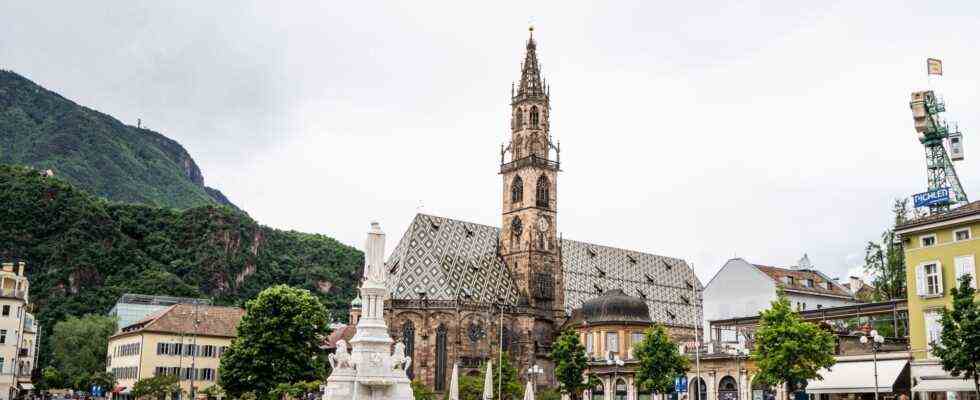Status: 07/28/2021 8:17 p.m.
This table is surprising: The province of South Tyrol is at the bottom of the ranking of vaccination rates in Italy. The region, of all places, where everything else runs so efficiently. What can that be?
Arno Kompatscher is sitting in his study on the second floor of the government building in Bolzano. Yes, the governor admits, when it comes to vaccination rates, South Tyrol lags behind in comparison with other Italian regions. “The willingness of the population to vaccinate is in some cases still too low.”
While South Tyrol often shines as the best in class in regional Italian statistics on other topics, the autonomous province is at the bottom this time. 45 percent of South Tyroleans are still without a corona vaccination. The southern Italian regions of Sicily and Calabria are doing just as badly.
In South Tyrol it is not a question of organization. Lots of people just don’t want to be here. Like Georg Zelger. The rental car driver drinks a cappuccino in a café on the outskirts of the center of Bolzano and explains why he does not take part in the anti-Covid vaccination campaign: “My health is worth a lot more to me than doing anyone a favor. Or maybe even promoting the pharmaceutical industry or to reinforce the political goals. Well, not with me! ”
Fierce vaccination debate in Germany and Austria
The vaccine skeptics in South Tyrol are predominantly German-speaking. The proximity to Germany and Austria, with the anti-vaccination movements there, is noticeable. “It is the case that German-speaking South Tyroleans mainly consume German-language media,” explains Governor Kompatscher. “And of course this debate, which is more heated in Germany and Austria than in Italy, is also correspondingly more present in South Tyrol. That may then have an influence.” With the result that as many people came to the recent rallies against the Corona restrictions in the relatively small Bolzano as in some major Italian cities.
Attorney Renate Holzeisen is one of the South Tyrolean spokespersons and defends her compatriots’ no to a vaccination: “We are now experiencing a huge field study on the general population and it is actually an expression of a very enlightened population that, from my point of view, is showing justified skepticism . ”
Arguments that are known in this way or similar from many opponents of vaccination, but have so far played a minor role in the Italian discussion. But Bolzano is different, says activist Holzeisen: “I assume that we in South Tyrol have more access to information due to our bilingual and sometimes trilingualism. We enjoy an enormously large media landscape, starting with the German-speaking one.”
Not people for vaccination, but vaccination for people
Despite all the difficulties, the provincial government wants to take countermeasures and now bring the vaccination directly to the people. Vaccination buses have been driving through South Tyrol for three weeks, stopping at marketplaces even in small communities and offering vaccinations in passing.
“The hardcore refusers are certainly not a target group, because I think they are unresponsive,” admits Patrick Franzoni, organizer of the vaccination campaign in South Tyrol. But the bus succeeds in getting the hesitant and the comfortable. “Those who go shopping in the community, for example. They see the bus, come there after shopping and get vaccinated.”
Governor Kompatscher also relies on this low-threshold offer with his compatriots, who are sometimes a bit unique. “I think that with us it is still bundled with an attitude that is: ‘I don’t let anything be prescribed to me.’ Just the feeling that you are somehow being pushed into something here leads to many people reacting allergically and saying: ‘I still do my own things.’ “That is a Tyrolean peculiarity.
South Tyrol – stronghold of the anti-Covid vaccine opponents in Italy
Jörg Seisselberg, ARD Rome, July 28, 2021 5:53 p.m.

